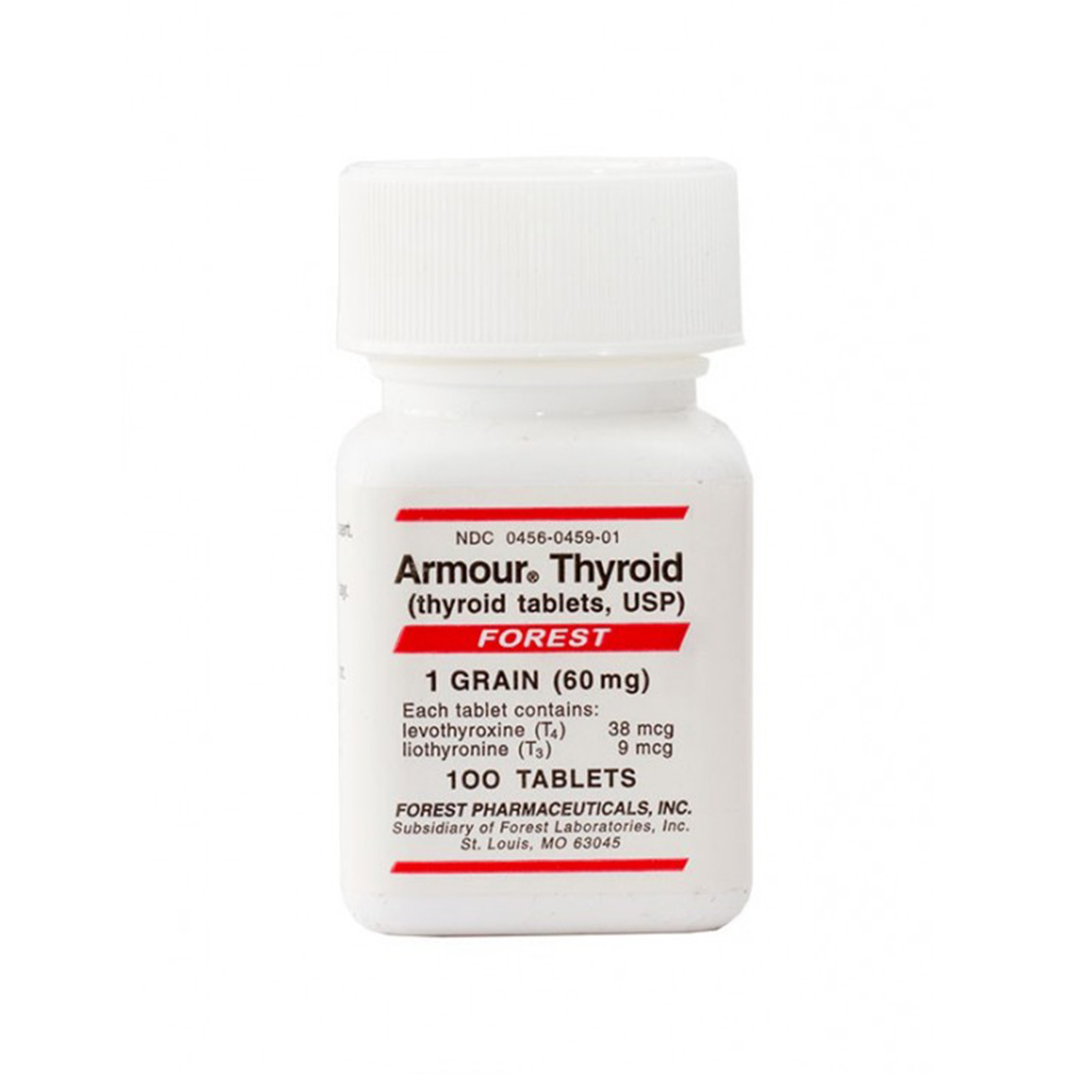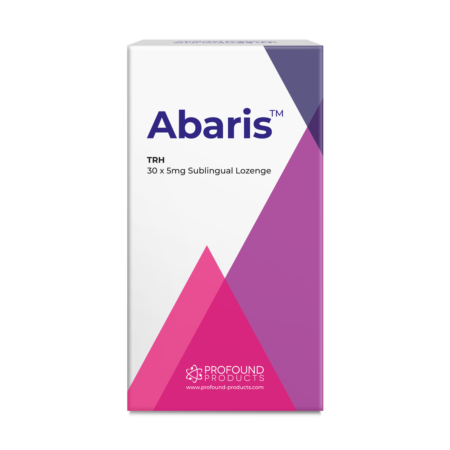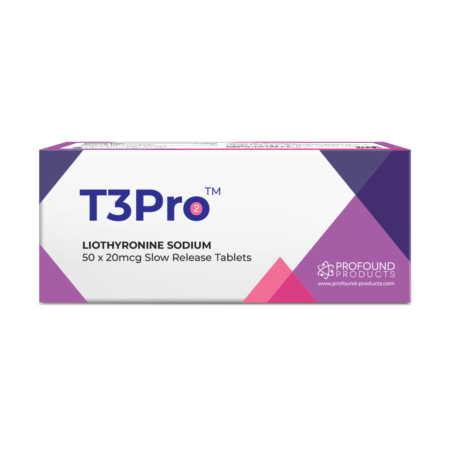Description
Armour thyroid supplements for an anti-ageing boost
One of the key factors of ageing is the depletion in size and activity of the thyroid gland. The thyroid controls our metabolism – how we use the energy that enters our body through food.
The decline of the thyroid can trigger a number of health problems in later life, including the Thyroid disease hypothyroidism, characterised by a decline in hormone secretion (not to be confused with hyperthyroidism, which denotes an overactive thyroid).
It is crucial then to protect and boost your thyroid with specially-tailored anti-aging thyroid supplements – helping to guard against thyroid symptoms and promote health and vitality.
Many factors come into play with thyroid issues, including age, weight, and natural metabolic activity. Our unique range of thyroid armour supplements offers a comprehensive programme of treatment. It’s the best way to guarantee you’ll get the right thyroid dosage for your needs.
ARMOUR® THYROID (thyroid tablets, USP)
DESCRIPTION
Armour® Thyroid (thyroid tablets, USP) for oral use is a natural preparation derived from porcine thyroid glands and has a strong, characteristic odor. They provide 38 mcg levothyroxine (T4) and 9 mcg
liothyronine (T3) per grain of thyroid. The inactive ingredients are calcium stearate, dextrose, microcrystalline cellulose, sodium starch glycolate and opadry white.
INDICATIONS AND USAGE
As replacement or supplemental therapy in patients with hypothyroidism of any etiology, except transient hypothyroidism during the recovery phase of subacute thyroiditis. This category includes cretinism, myxedema, and ordinary hypothyroidism in patients of any age (children, adults, the elderly), or state (including pregnancy); primary hypothyroidism resulting from functional deficiency, primary atrophy, partial or total absence of thyroid gland, or the effects of surgery, radiation, or drugs, with or without the presence of goiter; and secondary (pituitary), or tertiary (hypothalamic) hypothyroidism
As pituitary TSH suppressants, in the treatment or prevention of various types of euthyroid goiters, including thyroid nodules, subacute or chronic Iymphocytic thyroiditis (Hashimoto’s), multinodular goiter, and in the management of thyroid cancer.
CONTRAINDICATIONS
Thyroid hormone preparations are generally contraindicated in patients with diagnosed but as yet uncorrected adrenal cortical insufficiency, untreated thyrotoxicosis, and apparent hypersensitivity to any of their active or extraneous constituents. There is no well-documented evidence from the literature, however, of true allergic or idiosyncratic reactions to thyroid hormone.
WARNINGS
Drugs with thyroid hormone activity, alone or together with other therapeutic agents, have been used for the treatment of obesity. In euthyroid patients, doses within the range of daily hormonal requirements are ineffective for weight reduction. Larger doses may produce serious or even life threatening manifestations of toxicity, particularly when given in association with sympathomimetic amines such as those used for their anorectic effects. The use of thyroid hormones in the therapy of obesity, alone or combined with other drugs, is unjustified and has been shown to be ineffective. Neither is their use justified for the treatment of male or female infertility unless this condition is accompanied by hypothyroidism.
PRECAUTIONS
General
Thyroid hormones should be used with great caution in a number of circumstances where the integrity of the cardiovascular system, particularly the coronary arteries, is suspected. These include patients with angina pectoris or the elderly, in whom there is a greater likelihood of occult cardiac disease. In these patients therapy should be initiated with low doses, i.e., 15-30 mg Armour Thyroid. When, in such patients, a euthyroid state can only be reached at the expense of an aggravation of the cardiovascular disease, thyroid hormone dosage should be reduced. Thyroid hormone therapy in patients with concomitant diabetes mellitus or diabetes insipidus or adrenal cortical insufficiency aggravates the intensity of their symptoms. Appropriate adjustments of the various therapeutic measures directed at these concomitant endocrine diseases are required. The therapy of myxedema coma requires simultaneous administration of glucocorticoids. Hypothyroidism decreases and hyperthyroidism increases the sensitivity to oral anticoagulants. Prothrombin time should be closely monitored in thyroid-treated patients on oral anticoagulants and dosage of the latter agents adjusted on the basis of frequent prothrombin time determinations. In infants, excessive doses of thyroid hormone preparations may produce craniosynostosis.
Information for the Patient
Replacement therapy is to be taken essentially for life, with the exception of cases of transient hypothyroidism, usually associated with thyroiditis, and in those patients receiving a therapeutic trial of the drug. They should immediately report during the course of therapy any signs or symptoms of thyroid hormone toxicity, e.g., chest pain, increased pulse rate, palpitations, excessive sweating, heat intolerance, nervousness, or any other unusual event. In case of concomitant diabetes mellitus, the daily dosage of antidiabetic medication may need readjustment as thyroid hormone replacement is achieved. If thyroid medication is stopped, a downward readjustment of the dosage of insulin or oral hypoglycemic agent may be necessary to avoid hypoglycemia. At all times, close monitoring of urinary glucose levels is mandatory in such patients. In case of concomitant oral anticoagulant therapy, the prothrombin time should be measured frequently to determine if the dosage of oral anticoagulants is to be readjusted. Partial loss of hair may be experienced by children in the first few months of thyroid therapy, but this is usually a transient phenomenon and later recovery is usually the rule.
Drug Interactions
Oral Anticoagulants—Thyroid hormones appear to increase catabolism of vitamin K-dependent clotting factors. If oral anticoagulants are also being given, compensatory increases in clotting factor synthesis are impaired. Patients stabilized on oral anticoagulants who are found to require thyroid replacement therapy should be watched very closely when thyroid is started. If a patient is truly hypothyroid, it is likely that a reduction in anticoagulant dosage will be required. No special precautions appear to be necessary when oral anticoagulant therapy is begun in a patient already stabilized on maintenance thyroid replacement therapy.
Insulin or Oral Hypoglycemics—Initiating thyroid replacement therapy may cause increases in insulin or oral hypoglycemic requirements. The effects seen are poorly understood and depend upon a variety of factors such as dose and type of thyroid preparations and endocrine status of the patient. Patients receiving insulin or oral hypoglycemics should be closely watched during initiation of thyroid replacement therapy.
Cholestyramine or Colestipol—Cholestyramine or colestipol binds both levothyroxine (T4) and liothyronine (T3) in the intestine, thus impairing absorption of these thyroid hormones. In vitro studies indicate that the binding is not easily removed. Therefore four to five hours should elapse between administration of cholestyramine or colestipol and thyroid hormones.
Estrogen, Oral Contraceptives—Estrogens tend to increase serum thyroxine-binding globulin (TBg). In a patient with a nonfunctioning thyroid gland who is receiving thyroid replacement therapy, free levothyroxine (T4) may be decreased when estrogens are started thus increasing thyroid requirements. However, if the patient’s thyroid gland has sufficient function, the decreased free levothyroxine (T4) will result in a compensatory increase in levothyroxine (T4) output by the thyroid. Therefore, patients without a functioning thyroid gland who are on thyroid replacement therapy may need to increase their thyroid dose if estrogens or estrogen-containing oral contraceptives are given.
Pregnancy
Thyroid hormones do not readily cross the placental barrier. The clinical experience to date does not indicate any adverse effect on fetuses when thyroid hormones are administered to pregnant women. On the basis of current knowledge, thyroid replacement therapy to hypothyroid women should not be discontinued during pregnancy.
Nursing Mothers—Minimal amounts of thyroid hormones are excreted in human milk. Thyroid is not associated with serious adverse reactions and does not have a known tumorigenic potential. However, caution should be exercised when thyroid is administered to a nursing woman.
Pediatric Use—Pregnant mothers provide little or no thyroid hormone to the fetus. The incidence of congenital hypothyroidism is relatively high (1:4,000) and the hypothyroid fetus would not derive any benefit from the small amounts of hormone crossing the placental barrier. Routine determinations of serum T4 and/or TSH is strongly advised in neonates in view of the deleterious effects of thyroid deficiency on growth and development. Treatment should be initiated immediately upon diagnosis, and maintained for life, unless transient hypothyroidism is suspected; in which case, therapy may be interrupted for 2 to 8 weeks after the age of 3 years to reassess the condition. Cessation of therapy is justified in patients who have maintained a normal TSH during those 2 to 8 weeks.
ADVERSE REACTIONS
Adverse reactions other than those indicative of hyperthyroidism because of therapeutic overdosage, either initially or during the maintenance period, are rare
OVERDOSAGE
Signs and Symptoms
Excessive doses of thyroid result in a hypermetabolic state resembling in every respect the condition of endogenous origin. The condition may be self-induced.
Treatment of Overdosage
Dosage should be reduced or therapy temporarily discontinued if signs and symptoms of overdosage appear. Treatment may be reinstituted at a lower dosage. In normal individuals, normal hypothalamic-pituitary-thyroid axis function is restored in 6 to 8 weeks after thyroid suppression. Treatment of acute massive thyroid hormone overdosage is aimed at reducing gastrointestinal absorption of the drugs and counteracting central and peripheral effects, mainly those of increased sympathetic activity. Vomiting may be induced initially if further gastrointestinal absorption can reasonably be prevented and barring contraindications such as coma, convulsions, or loss of the gagging reflex. Treatment is symptomatic and supportive. Oxygen may be administered and ventilation maintained. Cardiac glycosides may be indicated if congestive heart failure develops. Measures to control fever, hypoglycemia, or fluid loss should be instituted if needed. Antiadrenergic agents, particularly propranolol, have been used advantageously in the treatment of increased sympathetic activity. Propranolol may be administered intravenously at a dosage of 1 to 3 mg, over a 10-minute period or orally, 80 to 160mg/day, initially, especially when no contraindications exist for its use.
Other adjunctive measures may include administration of cholestyramine to interfere with thyroxine absorption, and glucocorticoids to inhibit conversion of T4 to T3.
DOSAGE AND ADMINISTRATION
The dosage of thyroid hormones must in every case be individualized according to patient response and laboratory findings. In acute, emergency conditions, injectable levothyroxine sodium (T4) may be given intravenously when oral administration is not feasible or desirable, as in the treatment of myxedema coma, or during total parenteral nutrition. Intramuscular administration is not advisable because of reported poor absorption.
Hypothyroidism
Therapy is usually instituted using low doses, with increments which depend on the cardiovascular status of the patient. The usual starting dose is 30 mg Armour Thyroid, with increments of 15 mg every 2 to 3 weeks. A lower starting dosage, 15 mg/day, is recommended in patients with long-standing myxedema, particularly if cardiovascular impairment is suspected, in which case extreme caution is recommended. The appearance of angina is an indication for a reduction in dosage. Most patients require 60 to 120 mg/day. Failure to respond to doses of 180 mg suggests lack of compliance or malabsorption. Maintenance dosages 60 to 120 mg/day usually result in normal serum T4 and T3 levels. Adequate therapy usually results in normal TSH and T4 levels after 2 to 3 weeks of therapy. Readjustment of thyroid hormone dosage should be made within the first four weeks of therapy, after proper clinical and laboratory evaluations, including serum levels of T4, bound and free, and TSH.
Liothyronine (T3) may be used in preference to levothyroxine (T4) during radio-isotope scanning procedures, since induction of hypothyroidism in those cases is more abrupt and can be of shorter duration. It may also be preferred when impairment of peripheral conversion of levothyroxine (T4) and liothyronine (T3) is suspected.
Myxedema Coma
Myxedema coma is usually precipitated in the hypothyroid patient of long-standing by intercurrent illness or drugs such as sedatives and anesthetics and should be considered a medical emergency. Therapy should be directed at the correction of electrolyte disturbances and possible infection besides the administration of thyroid hormones. Corticosteroids should be administered routinely. Levothyroxine (T4) and liothyronine (T3) may be administered via a nasogastric tube but the preferred
route of administration of both hormones is intravenous. Levothyroxine sodium (T4) is given at a starting dose of 400 mcg (100 mcg/mL) given rapidly, and is usually well tolerated, even in the elderly. This initial dose is followed by daily supplements of 100 to 200 mcg given IV. Normal T4 levels are achieved in 24 hours followed in 3 days by threefold elevation of T3. Oral therapy with thyroid hormone would be resumed as soon as the clinical situation has been stabilized and the patient is able to take oral medication.
Thyroid Cancer
Exogenous thyroid hormone may produce regression of metastases from follicular and papillary carcinoma of the thyroid and is used as ancillary therapy of these conditions with radioactive iodine. TSH should be suppressed to low or undetectable levels. Therefore, larger amounts of thyroid hormone than those used for replacement therapy are required. Medullary carcinoma of the thyroid is usually unresponsive to this therapy.
Thyroid Suppression Therapy
Administration of thyroid hormone indoses higher than those produced physiologically by the gland results in suppression of the production of endogenous hormone. This is the basis for the thyroid suppression test and is used as an aid in the diagnosis of patients with signs of mild hyperthyroidism in whom base line laboratory tests appear normal, or to demonstrate thyroid gland autonomy in patients with Grave’s ophthalmopathy. 131I uptake is determined before and after the administration of the exogenous hormone. A 50 percent or greater suppression of uptake indicates a normal thyroid-pituitary axis and thus rules out thyroid gland autonomy. For adults, the usual suppressive dose of levothyroxine (T4) is 1.56 mcg/kg of body weight per day given for 7 to 10 days. These doses usually yield normal serum T4 and T3 levels and lack of response to TSH. Thyroid hormones should be administered cautiously to patients in whom there is strong suspicion of thyroid gland autonomy, in view of the fact that the exogenous hormone effects will be additive to the endogenous source.
Pediatric Dosage
In infants with congenital hypothyroidism, therapy with full doses should be instituted as soon as the diagnosis has been made.
Recommended Pediatric Dosage for Congential Hypothyroidism
| AGE |
Dose per day |
Daily dose per KG of body weight | ||
| 0-6 months | 15-30 mg | 4.8-6mg | ||
| 6-12 months | 30-45 mg | 3.6-4.8 mg | ||
| 1-5 years | 45-60 mg | 3-3.6 mg | ||
| 6-12 years | 60-90 mg | 2.4-3 mg | ||
| 12 years | Over 90 mg | 1.2-1.8 mg | ||
Armour Thyroid tablets are evenly colored, light tan, round tablets, with convex surfaces. One side is debossed with a mortar and pestle beneath the letter “A” on the top and strength code letters on the bottom as defined below
Strength Code
1/4 grain TC
1/2 grain TD
1 grain TE
1 1/2 grain TJ
2 grain TF
3 grain TG (bisected)
4 grain TH
5 grain TI (bisected)
Note: (T3 liothyronine is approximately four times as potent as T4 levothyroxine on a microgram for microgram basis.) Store in a tight container protected from light and moisture. Store between 15°C and 30°C (59°F and 86°F).




Reviews
There are no reviews yet.